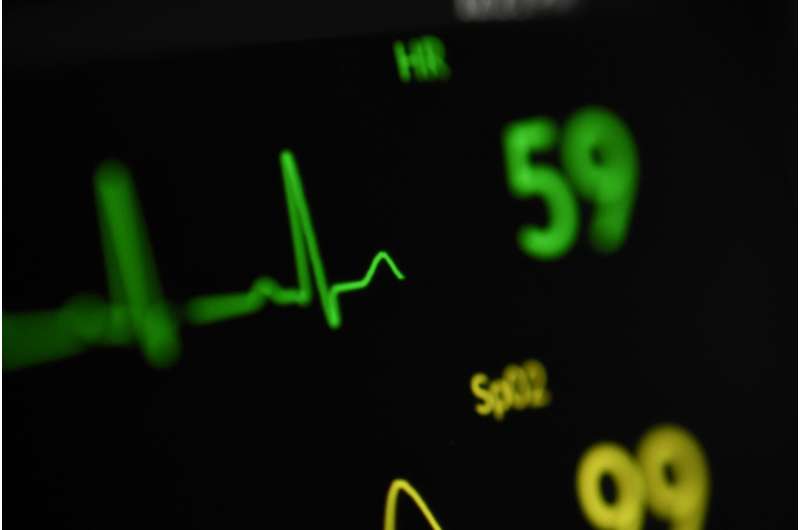This article has been reviewed according to Science X's editorial process and policies. Editors have highlighted the following attributes while ensuring the content's credibility:
fact-checked
trusted source
proofread
Your wearable says your heart rate variability has changed: Now what? A cardiologist explains

Wearables measure several aspects of health, and heart rate variability might be one of those. It may be surprising when your device informs you that your heart rate variability is high or low, but what does it mean? Elijah Behr, M.D., a cardiologist at Mayo Clinic Healthcare in London, explains heart rate variability and how it factors into health.
What does heart rate variability measure?
"It measures the balance of nerve activity in the body and the way it relates to your heart rate and blood pressure," Dr. Behr explains.
The nerve system that heart rate variability relates to is called the autonomic nervous system. It can be thought of as the balance between the effects of adrenaline in the body and the other part of the nervous system, the vagus nerve, Dr. Behr adds.
"From beat to beat, or over periods of time, heart rate variability can be measured in different ways to try to assess this balance within the autonomic nervous system," he says.
What does high or low heart rate variability mean?
"In general, people who have higher heart rate variability are more likely to have better cardiovascular fitness. Athletes tend to have a very high heart rate variability, for instance," Dr. Behr says.
People with lower heart rate variability may be likelier to lack cardiovascular fitness or to have underlying heart disease, he explains.
Does this mean people with high heart rate variability have nothing to worry about, and those with low heart rate variability should be concerned?
For people who haven't been diagnosed with a heart condition and are otherwise healthy, heart rate variability alone isn't information that a doctor can act upon, Dr. Behr says.
"Heart rate variability by itself isn't likely to give you a good view of your likelihood of say, heart attack or cardiac arrest or other heart rhythm problems. It doesn't provide enough detail to say, 'Yes, you're at heightened risk of X,'" he says.
Research on heart rate variability in patients who have had heart attacks has not been incorporated as yet into clinical decision making about them, such as treating someone more aggressively, Dr. Behr says.
Can you improve your heart rate variability?
"One could say to a patient that you need to exercise more, lose a bit of weight, get fitter. But these are things that would be promoted for heart health generally," Dr. Behr says.
Advice for people worried about their heart rate variability
"Ignore it as a stand-alone measure. Do use it as a way of pushing you toward being a bit healthier in your lifestyle," Dr. Behr advises.
"Watch blood pressure, cholesterol, weight, exercise; if you're worried about your heart rate variability, you should be worried about these. They are more tangible risks that can be acted upon and that we know will have an impact on your longevity."




















